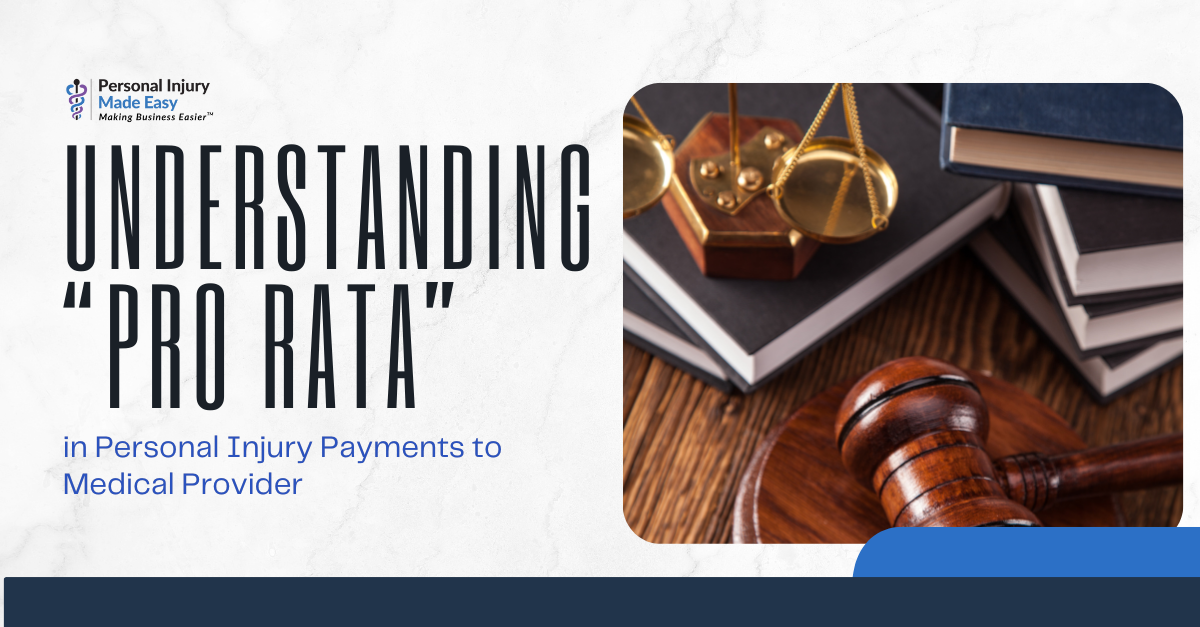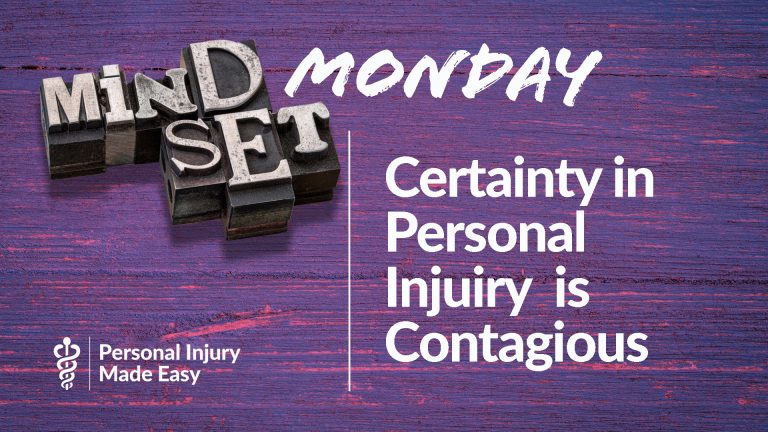
Negotiating with Law Firms Is a Process You Can Control
Patience, Delayed Gratification, and the Power of the Pause
Let’s talk about negotiation, not as an event, but as a process. Not a lightning strike, but a slow simmer. Not a microwave moment, but a stew that builds flavor over time.
In the medical field—especially when dealing with personal injury (PI) attorneys—we often want things to happen fast. “Here’s our bill. Can we get it paid now or soon?” But the truth is, getting paid in PI rarely works like that. If negotiation were cooking, some dishes might be instant oatmeal, but others are brisket. And brisket demands low-and-slow cooking over time.
Everything Doesn’t Cook on the Same Heat
Let’s break this down.
Some things in medicine are ready instantly, like when a patient fills out your intake paperwork, gets treated, and pay cash at each visit.
That’s instant oatmeal. Nice when it happens, but not as profitable so, not as savory.
Other times, it’s more like a stir-fry, fast, hot, and handled in minutes. That’s your MedPay patient, or a PI case that settles soon after treatment ends and a law firm pays promptly with little friction.
But then you have the slow-roast cases, the overnight marinades, the 48-hour bone broths.
These are the ones where you’ve treated and discharged the patient. Sent the lien. Sent the bill. Sent multiple follow-ups. And after all that, the law firm says:
“We need a reduction.”
“We’re still waiting on settlement.”
Or worse … silence.
This is where most offices start to lose patience. But this is actually where negotiation really begins.
Because Negotiation Isn’t One Conversation
Getting paid by PI law firms is not a one-and-done exchange. It’s not a single email. It’s not a demand, reply, and resolution.
It’s a process.
Negotiation is a dance. A chess match. A slow-cooking recipe.
You don’t control how fast the other side responds. But you do control your process, your persistence, and your professionalism.
Your objective is clear: get paid fairly and fully. But as you already know, simple is not the same as easy.
Expect Rejection—and Plan for It
One reason negotiation takes time? Rejection! You should expect it, especially early in the process. Especially early in the process.
Lowball offers, deflection, and denial are part of the law firm playbook. That first “no” isn’t the end, it’s just the first 20 minutes in the oven.
Law firms are often trained to push back. “We can’t pay that” is automatic. Don’t take it personally. Expect it and plan for it.
That initial rejection is like steam escaping from the pressure cooker. Don’t lift the lid. Let it continue to cook.
Delayed Gratification Is a Negotiator’s Superpower
Getting paid well in PI requires something rare in our fast-paced world: delayed gratification.
You must be willing to wait. To outlast. To let time work for you.
Because while others rush to settle or cave at the first pushback, you’re mastering the long game.
This isn’t just about patience. It’s about emotional intelligence (EQ).
EQ gives you the ability to:
- Regulate your reaction to delay or rejection.
- Read the emotional landscape of the negotiation.
- Know when to press and when to pause.
- Stay calm and controlled instead of reactive and rushed.
A high-EQ negotiator wins because they don’t just ask for payment, they manage the relationship and the moment.
Ninja Silence and the Power of the Pause
Now let’s talk about one of your most overlooked negotiation tools: Ninja Silence.
Ninja Silence is not ghosting. It’s not giving up.
It’s a strategic pause after you’ve made your move: responded, countered, justified, or requested information (like a settlement breakdown). And then… you wait.
Why?
Because law firms need space to realize there’s a problem, and to solve it.
They often can’t respond right away, especially when junior staff is involved. They may need to:
- Rethink strategy
- Consult their client
- Get internal attorney approval
- Do the math
- Acknowledge the issue they may have caused
Ninja Silence creates the thought space they need to shift. And that’s when real concessions happen.
But here’s what most people miss: Ninja Silence isn’t just for them. It’s also for you.
Silence gives you:
- Time to reflect on your own tone, timing, and tactics
- Mental clarity on your best next step
- Distance to avoid reacting emotionally
- Strategic breathing room to focus on bill resolution, not proving you are right
Sometimes the smartest move isn’t to send another demand or more argument. It’s to pause and let the weight of your last message settle.
Final Thoughts: Don’t Quit at the Second Stir
Too many offices treat negotiation like it should be wrapped up in two or three exchanges. That’s like checking a stew after five minutes and declaring it ruined.
Patience pays.
When your goal is to get paid fully for the care your team delivered, negotiate like a seasoned chef:
- Know your recipe and negotiation method
- Expect rejection and delays
- Use time and silence as tools
- Stay composed with high EQ
- Let the process do its work
- And embrace Ninja Silence as both a signal and a strategy
Next time an attorney doesn’t reply? Don’t panic. Don’t chase.
You’re not losing, you’re still cooking.
And that final result, being fairly and profitably paid, is always worth the extra time.
Because you aren’t just a giving healer. You’re also a for-profit business.

















